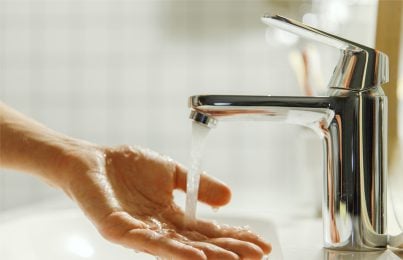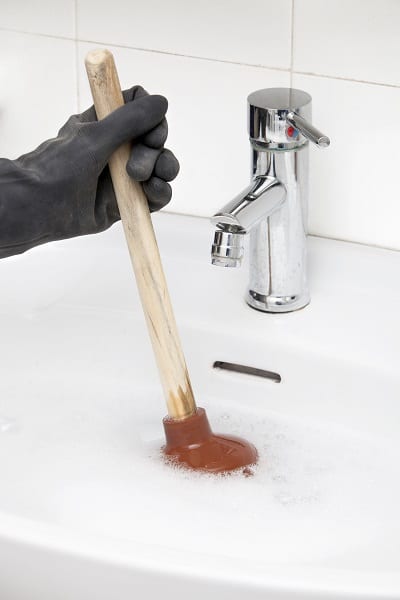In this article down the page you will find a good deal of helpful resources pertaining to Prevent Freezing and Bursting Pipes.

All homeowners that live in warm environments have to do their finest to winterize their pipelines. Failing to do so can spell disaster like icy, broken, or ruptured pipelines.
Switch on the Faucets
When the temperature level decreases and it appears as if the freezing temperature level will last, it will certainly aid to switch on your water both indoors as well as outdoors. This will maintain the water streaming via your plumbing systems. In addition, the motion will decrease the cold process. Especially, there's no need to turn it on full force. You'll end up throwing away gallons of water by doing this. Rather, aim for concerning 5 decreases per minute.
Open Closet Doors Hiding Plumbing
It would certainly be helpful to open up closet doors that are camouflaging your pipes when it's cold outside. For instance, they could be somewhere in your cooking area or shower room. This will certainly permit the warm air from your heating unit to distribute there. As a result, you protect against these revealed pipes from cold. Doing this tiny trick can maintain your pipelines warm as well as limit the possibly unsafe end results of freezing temperatures.
Require Time to Wrap Exposed Water Lines
One simple and great hack to warm up cold pipelines is to cover them with warm towels. You can additionally use pre-soaked towels in warm water, just don't forget to use safety handwear covers to protect your hands from the warmth.
Attempt a Hair Clothes Dryer or Warmth Weapon
When your pipes are almost freezing, your trusty hair dryer or warm gun is a godsend. If the warm towels do not help dislodge any type of settling ice in your pipes, bowling warm air straight into them may assist. You might finish up harmful your pipelines while attempting to thaw the ice.
When Pipelines are Frozen, shut Off Water
Switch off the main water valve immediately if you discover that your pipes are entirely frozen or nearly nearing that phase. You will normally locate this in your basement or laundry room near the heater or the front wall closest to the street. Turn it off as soon as possible to stop further damage.
With even more water, more ice will load up, which will ultimately lead to burst pipes. If you are unsure regarding the state of your pipelines this wintertime, it is best to call an expert plumber for an examination.
All home owners that live in warm climates have to do their ideal to winterize their pipelines. Failure to do so can lead to catastrophe like frozen, fractured, or ruptured pipelines. If the warm towels do not assist remove any kind of clearing up ice in your pipes, bowling warm air straight into them might assist. Turn off the major water valve right away if you discover that your pipes are entirely icy or virtually nearing that phase. With more water, more ice will load up, which will ultimately lead to rupture pipelines.
How to Prevent Frozen Pipes This Winter: A Simple Guide
Have you ever dealt with frozen pipes in the winter? If so, you know what a pain they can be. When water freezes, it expands. This expansion puts a huge amount of pressure on your pipes and it can cause pipes to burst, making a huge mess of your home.
If they don’t burst, they may crack. This is a less noticeable problem, but it’s still a big deal. As water leaks, your home will accumulate moisture which leads to mold and mildew.
Do you know how to prevent frozen pipes to protect your home? Let’s talk about it. Keep reading for our brief guide for avoiding frozen pipes.
Keep Cabinet Doors Open
When it gets too cold outside it’s a good idea to leave the cabinet doors in your bathroom and kitchen open.
Why is that?
You want as much heat as possible to get to the pipes. The cabinets are dark and cold and they don’t get any air circulation. This makes the pipes more likely to freeze.
When you let the warm air from the rest of the house circulate around the pipes, it keeps them safe.
Apply Heat Tape and Insulation
It’s a good idea to insulate your pipes during the winter. There are several ways to do this on your own.
You can buy pipe insulators. They’re easy to attach to your pipes and easy to remove when the water gets warmer. They look like thick foam and they keep your pipes warm enough to not burst.
You can also apply heat tape (or insulation tape). These are self-adhesive so they’re easy to place and remove as well.
Know When to Call a Plumber
So what if you’ve already done these things but you’re still unsure if it’s enough? What if your pipes have already cracked or burst?
This is when it’s time to contact a plumbing professional.
They know how to prevent frozen pipes and manage pipes that are already frozen before they pose a problem. In the event of a cracked pipe, they can fix that as well.
https://www.mcwilliamsandson.com/blogs/how-to-prevent-frozen-pipes-this-winter-a-simple-guide

I stumbled upon that piece on Prevent Freezing and Bursting Pipes while surfing the web. Appreciated our content? Please share it. Help someone else discover it. I praise you for your time. Come back soon.
Call Today